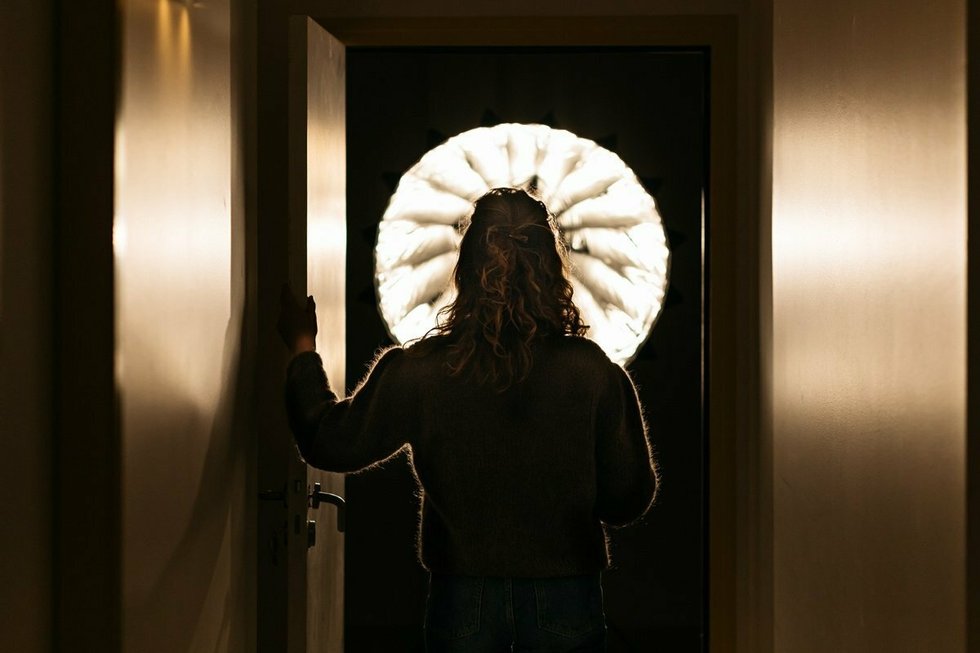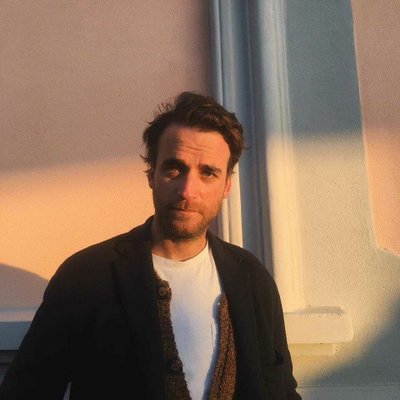How to Do Nothing: Resisting the Attention Economy by Jenny Odell
Feb 23, 2022
6 mins



Photographe chez Welcome to the Jungle
To say that workers are more exhausted than ever from spending their lives in front of screens would be an understatement. In 2022 burnout rates among workers are at unprecedented levels. Employees are resigning in droves in search of better opportunities. Their satisfaction levels closely follow the downward curve of their mental health. What if the main problem was the fact that the attention economy has swallowed us whole? What if the solution was to start resisting it?
In a beautiful book published right before the start of the pandemic, artist and Stanford professor Jenny Odell questions “what we perceive as productive.” How to Do Nothing: Resisting the Attention Economy (2019) makes the case for redirecting our attention as an act of resistance and a way to live a more meaningful life. Her message feels even more relevant and necessary after years of Covid-related attention-destroying transformations.
The phrase attention economy was coined by economist and psychologist Herbert A Simon in the 1970s. In an article entitled Designing Organizations for an information-rich world, he and his co-authors wrote prophetically that “in an information-rich world, the wealth of information means a dearth of something else . . . What information consumes is rather obvious: it consumes the attention of its recipients. Hence a wealth of information creates a poverty of attention and a need to allocate that attention efficiently among the overabundance of information sources that might consume it.”
In our networked age of infobesity, the scarcity and low quality of our attention is ruining our health, relationships, communities and the planet, argues Odell. Like Simon before her, she contends that attention is the “bottleneck of human thought.” It determines what we perceive in our environments. We are and we do what we pay attention to. What does it mean to resist? How can one do nothing? Odell offers precious stories and examples from art and nature to help the reader to “take a walk” and learn to resist.
“*The point of doing nothing, as I define it, isn’t to return to work refreshed and ready to be more productive, but rather to question what we currently perceive as productive . . . I see people caught up not just in notifications but in a mythology of productivity and progress, unable not only to rest but simply to see what they are . . . Why is it that the modern idea of productivity is so often a frame for what is actually the destruction of the natural productivity of an ecosystem?”*
Holding a contemplative space
As an artist, Odell makes a strong case for art having the power to shift our perspective. She devotes many pages of her book to the performance art pieces that created a “third space” and taught her to redirect her attention to her surroundings. At the very beginning of her book, she mentions a project called Applause Encouraged, which was a forty-five minute, site-specific show near San Diego where eight participants were asked to give away their phones and remain the entire time in an area cordoned-off by red rope, so that they could watch the sunset and then applaud. Paying new attention to her environment is also what Odell does when immersing herself in her new passion: birdwatching.
Later in the book, Odell pays tribute to the work of composer John Cage whose piece entitled 4’33 she enjoyed in a New York show. 4’33 is a 1952 three-movement composition during which the musicians on stage play – nothing. The piece consists of the sounds of the room, the coughing and laughing of the listeners who thus become actors in the performance. It may be presented as four minutes thirty-three seconds of silence, but it is anything but silence as it happens in a room filled with living beings. Cage viewed 4’33 as his most important work. For the author, the experience of listening to 4’33 was life-changing: after the show she started listening to ambient sounds she had never paid attention to before.
Performance art is still perceived as disturbing because it questions the framework within which we operate. In each of the pieces Odell mentions, “the artist creates a structure — whether that’s a map or a cordoned-off area — that holds open a contemplative space against the pressures of habit, familiarity, and distraction that constantly threaten to close it.” Also the art she puts forward relies on paying attention to context, to what’s already there, which is often more interesting than anything we could make.
The message is that our constant focus on production and productivity is misguided: instead we should learn to care for and maintain our environments, bodies and relationships. “We inhabit a culture that privileges novelty and growth over the cyclical and the regenerative. Our very idea of productivity is premised on the idea of producing something new, whereas we do not tend to see maintenance and care as productive in the same way.”
Refusing the terms of the question
What does it mean to resist and say no to the attention economy? Going on retreats and living like a recluse are not viable antidotes. To refuse is not the same as to walk away. Odell devotes many pages to Diogenes, the Cynic philosopher of Ancient Greece, whose refusal was so remarkable that we remember it many centuries later. “Diogenes’s most notorious act was to roam through the city streets with a lantern, looking for an honest man; in paintings, he’s often shown with the lantern by his side, sulking inside a round terra cotta tub while the life of the city goes on around him.” What Diogenes practiced was close to what we call “performance art” today.
“He lived his convictions out in the open and went to great lengths to shock people out of their habitual stupor.” Faced with the hypocrisy of society, Diogenes didn’t choose to become a recluse. Instead he chose to live within society but in a permanent state of refusal that shed light on its absurdities. Remaining in the world, he found ways to challenge its customs and values. He questioned the frame of reference and helped others question the way they perceive it. He stayed so as to refuse.
Diogenes’s act of refusal is made powerful by the way he redirects people’s attention and teaches them to perceive differently. At an individual level, paying attention implies alignment: “different parts of the mind and even the body acting in concert and oriented toward the same thing.” In and of itself, attention requires refusal: “to pay attention to one thing is to resist paying attention to other things; it means constantly denying and thwarting provocations outside the sphere of one’s attention.”
What’s true for the individual is true for a collective movement. In that sense, attention is inherently social and political. Any movement requires “alignment” too: “a mutual agreement among individuals who pay intense attention to the same things and to each other.” Alas the ability to do that is largely determined by socio-economic conditions. People who struggle to make ends meet may not be able to take part in such mass-refusal movements. Odell is convinced that institutional support (through, for example, healthcare or unemployment benefit) is indispensable to allow individuals to “afford” to refuse. When there is economic fear, there is no margin for refusal. Therefore creating an environment where economic fear is prevalent is a way of making sure people can do nothing but comply.
Training to improve your acuity
“There are many ‘systemic abuses’ to be refused at the moment, but I propose that one great place to start is the abuse of our attention. That’s because attention undergirds every other kind of meaningful refusal.” To change who you are you need to change what you pay attention to and how you pay attention to it. And that requires training. “*We need to be able to think across different time scales when the mediascape would have us think in twenty-four hour (or shorter) cycles, to pause for consideration when clickbait would have us click, to risk unpopularity by searching for context when our Facebook feed is an outpouring of unchecked outrage and scapegoating, to closely study the ways that media and advertising play upon our emotions…” *Interesting things can happen when people regain control over their attention.
Odell quotes composer John Cage, passionate about Zen buddhism, who once said, “In Zen, they say: If something is boring after two minutes, try it for four. If still boring, then eight. Then sixteen. Then thirty-two. Eventually one discovers that it is not boring at all.” Nourishing curiosity and taking the time to cultivate poetry can help open new “gates” toward more conscious perception. Instead of perceiving unconsciously, mindlessly you should seek to become more aware of your perception. (Indeed that’s what the whole mindfulness movement is about.)
“I am interested in a disciplined deepening of attention . . . I am personally unsatisfied with untrained attention, which flickers from one new thing to the next, not only because it is a shallow experience, or because it is an expression of habit rather than will, but because it gives me less access to my own human experience,” she writes. But this training should not serve the purpose of productivity and optimization. In fact it may completely “unsettle the priorities of the productive self.”
In a world where technology is designed to be addictive so as to sell our attention, where our value is determined by our (data) productivity, Odell offers a poetic guide to winning back our lives. If we can find a way to pay a new, better kind of attention, then we’ll be able to redefine our individual and collective role in the environment. Context is key: as humans we are part of ecosystems ie dynamically interacting systems of organisms and the communities they make up. We can no longer afford to ignore these ecosystems. How to Do Nothing is a beautiful, must-read book and action plan to start thinking outside of capitalist narratives of efficiency and techno-determinism. I highly recommend it!
Follow Welcome to the Jungle on Facebook on LinkedIn and on Instagram and subscribe to our newsletter to get our latest articles every day!

More inspiration: Laetitia Vitaud
Future of work author and speaker

Age does matter, at work and in the White House
What we've learned from the 2024 presidential elections about aging at work.
Sep 09, 2024

Can companies avoid a brain drain as retirements surge?
Bye bye, Baby Boomers. Hello, knowledge exodus?
Jun 12, 2024

Workplace anxiety: Navigating the future of work in an anxious world
Anxiety has taken center stage in our modern world. How is it shaping the future of work? And most of all, what can we do about it?
May 20, 2024

Why recruiters should hire more ex-freelancers
While freelance and salaried work can seem worlds apart, they may have more in common than you think.
May 02, 2024

How women over 50 are reinventing their careers and the future of work
Women in their 20s struggle to be taken seriously, while middle-aged women battle discrimination... So how are women over 50 reinventing the wheel?
Apr 02, 2024
The newsletter that does the job
Want to keep up with the latest articles? Twice a week you can receive stories, jobs, and tips in your inbox.

Looking for your next job?
Over 200,000 people have found a job with Welcome to the Jungle.
Explore jobs